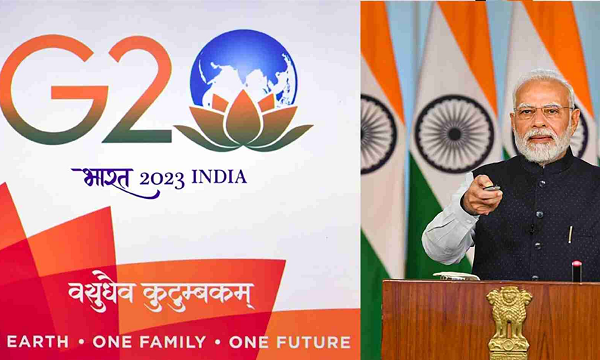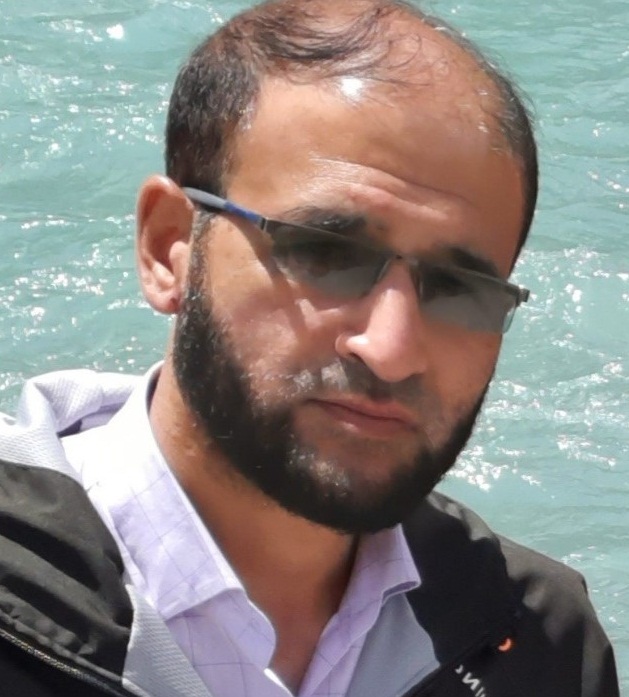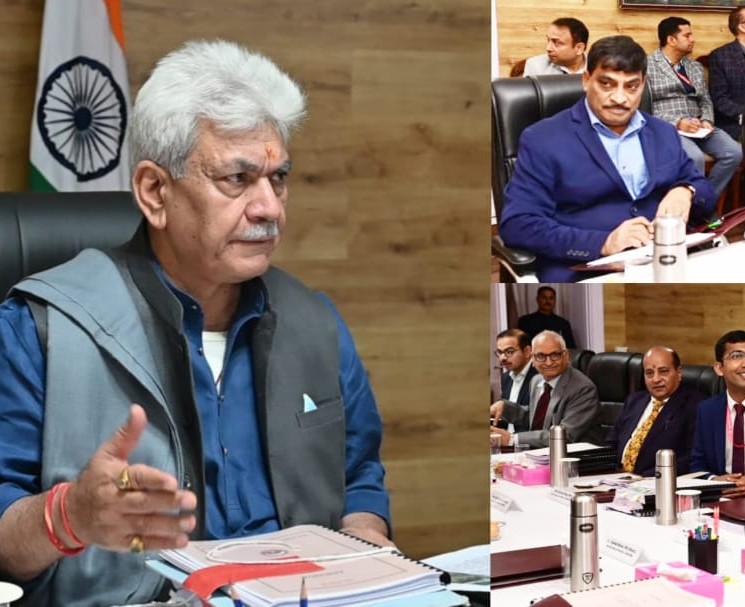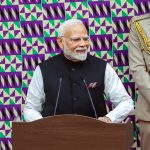Dr. PARVEEN KUMAR
As India takes over the reins of G20 for the year 2022-23, Hon’ble Prime Minister of the country while unveiling the logo, theme and website of India’s G20 presidency said that, ‘India led the renewable energy revolution with One Sun, One World, One Grid; India strengthened the global health initiative with One Earth, One Health and now India will strengthen the G20 with the theme ‘One Earth, One Family, One Future’. A post World War II initiative aimed at ensuring international financial stability and coordination and to address a host of other issues with global dimensions, G20 accounts for around two-thirds of the world population,75% of the international trade, 80% of Gross World Product (GWP) and 60% of the world’s land area; G20 is presently one of the largest and biggest intergovernmental forum comprising of 19 countries and the European Union (EU).
G20 composed of most of the world’s largest economies, including both developed and developing nations works to address major issues related to the global economy like international financial stability, climate change mitigation and sustainable development. The 19 countries in the G20 bloc include India, United Kingdom, United States of America, Brazil, China, Australia, Argentina, Japan, Canada, France, Germany, Indonesia, Italy, Republic of Korea, Saudi Arabia, Mexico, South Africa, Russia and Turkey. Formed in the year 1999 in response to the severe economic crisis that shocked the economies all across the globe, the group has been meeting at least once a year since 2008. The annual summit witnesses the participation of heads of government of member countries or their finance minister or foreign minister and other high-ranking officials. The European Union EU is represented by the European Commission and the European Central Bank. Other countries, international organizations, and nongovernmental organizations are invited to attend the summits and some on a permanent basis.
HISTORY OF G20
The foreshadow of G20 emerged at Cologne summit of the G7 in June 1999 and formally established at the G7 Finance Ministers’ meeting on 26 September 1999 with an inaugural meeting on 15–16 December 1999 in Berlin. Canadian Finance minister Paul Martin was chosen as the first chairman and German Finance minister Hans Eichel hosted the inaugural meeting. Paul Martin the then Finance Minister of Canada has been described as the crucial architect of the formation of the G-20 at finance minister level and as the one who later proposed that the G-20 countries move to leaders level summits. Canadian academic and journalistic sources have also identified the G20 a project initiated by Martin and his American counterpart then-Treasury Secretary, Larry Summers.
Martin and Summers conceived of the G20 in response to the series of massive debt crises that had spread across emerging markets in the late 1990s, beginning with the Mexican peso crisis followed by the 1997 Asian financial crisis, the 1998 Russian financial crisis and eventually impacting the United States most prominently in the form of the collapse of the prominent hedge fund Long-Term Capital Management in the autumn of 1998. It illustrated to them that in a rapidly globalizing world, the G7, G8, and the Bretton Woods system would be unable to provide financial stability and they conceived of a new broader permanent group of major world economies that would give a voice and new responsibilities in providing it. Since its formation, the G20’s primary focus has been governance of the global economy and summit themes have varied from year to year.
India assumed the G20 Presidency on the 1st of December 2022 from Indonesia and will convene the G20 Leaders’ Summit for the first time in the country in 2023. The 2022 G20 Bali summit at Indonesia was the seventeenth meeting of Group of Twenty held on Nov. 15-16. Brazil will host the G20 in 2024 followed by South Africa in 2025. G20 leaders met for a two-day summit hosted by the Indonesian G20 presidency in Bali, under the theme ‘Recover Together, Recover Stronger’.
PRIORITIES AS PRESIDENT
Now being placed at the helm of affairs of G20, India has got a unique opportunity to contribute to the global agenda on pressing issues of international importance. Hon’ble Prime Minister Sh. Narendra Modi had rightly said that for India the G-20 in 2023 will not only be about diplomatic meetings, but it will provide us with the opportunity to showcase our developmental strides aimed at furthering global good. India has also invited Bangladesh, Egypt, Mauritius, Netherlands, Nigeria, Oman, Singapore, Spain and the UAE as guest countries for the summit in 2023. The throne is not without thorns. As India assumes G20 Presidency, there are daunting challenges ahead of it. It has been rightly said that Indian G20 priorities are inclusive, equitable and sustainable growth, women’s empowerment, digital public infrastructure and tech-enabled development, climate financing, energy security, food security and others. India has to lead from the front.
The global economy is already in doldrums post the COVID 19 pandemic. Unemployment, hunger and malnutrition are still forces to fight, SDG 2030 are rushing in, climate change is already hitting hard the food and nutritional security, sea levels are on the rise and many other challenges are confronting the humanity on the planet. What is more disturbing is regarding the credibility of the group. Individual differences and cooperation has overshadowed the group goals and objectives. An internal rift between the member countries is clearly visible. Countries are not able to arrive at a consensus regarding issues having global repercussions. It has to find innovative solutions and build bridges. India has to come out with a solution or a programme that is acceptable to all the member countries.
Regarding the financial instability and the recession in the global economy more so after the COVID-19 pandemic, the priority of India would be to come up with a roadmap for financial recovery and inclusiveness by collaborating with international bodies like World Trade Organization (WTO), International Monetary Fund (IMF), Organization for Economic Co-operation and Development (OECD), and the Financial Stability Board (FSB). All across the globe although a lot has been done for ensuring food security but a lot still needs to be done towards ensuring nutritional security to all. Reports reveal that about 200 million people have gone below the poverty line and 75 million people having lost their jobs due to Covid. The challenge for us would also be to accelerate the pace of SDG Sustainable Development Goals as we will be midway through the 2030 agenda.
Global efforts like food fortification, promotion and use of millets in daily diet have to be scaled up. India would also be under pressure to come up with a clear policy on Russia-Ukraine conflict. To forge unity among the member countries, governance reforms to promote inclusiveness and unity. Climate financing is another area that India needs to work on with the rich and developed nations. In 2009, they had committed to providing developing countries $100 billion a year. This commitment has not been adequately provided for. The developed countries have to be pushed for transfer of clean technologies and renewable energies developing economies and more to the vulnerable economies. Solar energy is another area where India can show way to the world as an effective strategy to tackle climate related changes and ultimately the increased temperatures.
India has also to ensure that the decisions taken at Bali summit are enforced in letter and spirit. After three decades of pushing for compensation for ‘Loss and Damage’ caused by climate change, the 27th Conference of Parties has adopted the proposal. The parties also agreed to utilize the Santiago Network, established at COP 25 and to establish and operationalize a Loss and Damage fund particularly for nations most vulnerable to the climate crisis. A ‘transitional committee’ has been formed to work out the modalities regarding who will manage the fund, whether contributions are expected from large developing countries and what the fair share of contributors will be. Besides Loss and Damage, COP 27 also saw the launch of a new five-year work program to promote climate technology solutions in developing countries. The countries also launched a package of 25 new collaborative actions in five key areas: power, road transport, steel, hydrogen and agriculture. UN Secretary-General Antonio Guterres announced a USD 3.1 billion plan to ensure everyone on the planet is protected by early warning systems within the next five years. India will also have to play a proactive role in all these developments.
India has carried out a vast amount of digital transformation through the digital public infrastructure. India also has to guide and lead the world in health. By making and exporting the COVID vaccine to world, India has emerged as vaccine producer of the world as to how it did developed vaccine for COVID. Infact the global community has acknowledged that the vaccine developed by India saved billions of lives all over the globe. India also has emerged as skill capital with a lot being invested in creation and generation of enterprises in agriculture and allied sectors. With initiatives like Make in India, Vocal for Local and Digital missions India has also emerged as soft power to which all other democracies of the world look for guidance and mentorship.
Through G20 Presidency, the country has become the voice of the developing world. We have to set the agenda for the entire world. It is for the world to react to that agenda.
No doubt, there are challenges; but with collective will and determination, an emerging country like ours will make this historic and path breaking moment an opportunity to prove itself and lead the world.
(Dr. Kumar is a Faculty at SKUAST-K, can be reached at [email protected]








